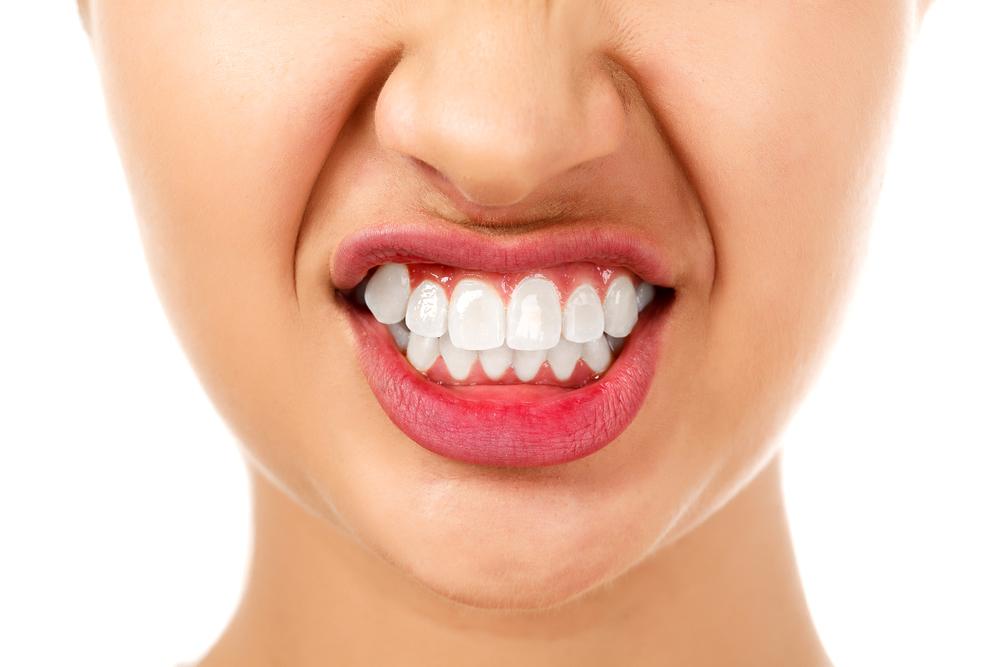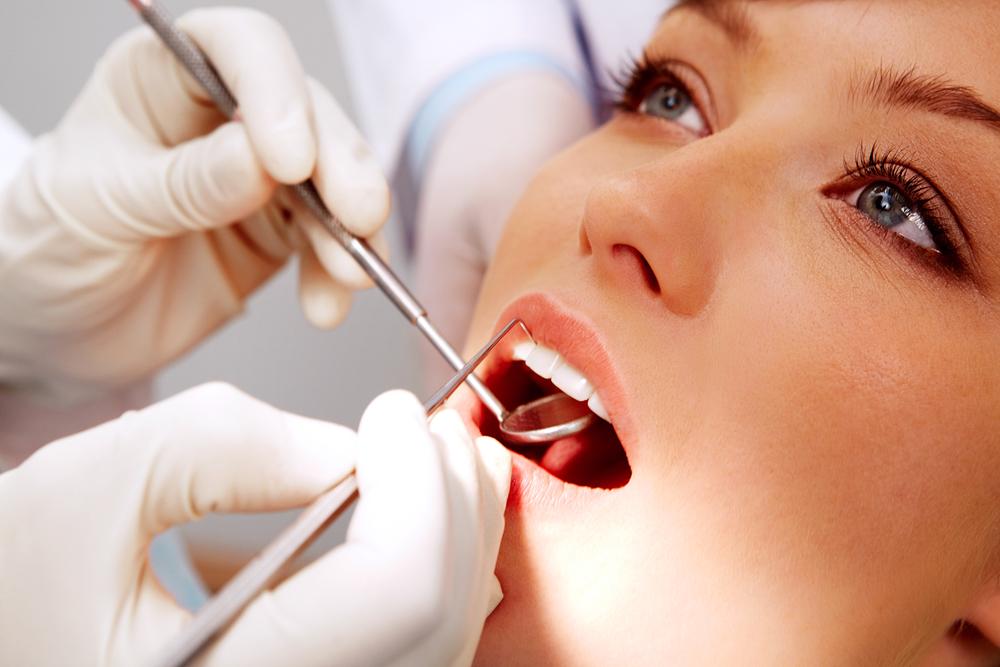
Unconscious grinding of teeth or strong jaw clenching occurs most often at night, although it can also happen during the day. A person struggling with this condition is often unaware of it for a long time, despite the fact that it gives a number of unpleasant symptoms. If bruxism is our problem, our loved ones often suffer from it, who can be awakened by the characteristic sound of grinding teeth in the middle of the night.
What is bruxism, what does it lead to, and can one get rid of it? Read today about how troublesome teeth grinding can be and how you can deal with it.
Who grits his teeth?
The problem of bruxism is affecting more and more people regardless of age and gender. Unfortunately, not everyone knows that e.g. headaches, jaw cracks or earaches can be the result of involuntary gnashing of teeth. What is its cause?

- Emotions and psyche. The first, most often mentioned factor causing bruxism is stress, right behind it we are also talking about anxiety neurosis and depression. Very often in this way we subconsciously unload negative emotions accumulated during the day. Involuntary gnashing of the teeth goes hand in hand with problems at work, an excessive amount of duties, imposed on us a huge responsibility for the tasks entrusted to us, conflicts, family or financial problems. It also accompanies people with low self-esteem, excessive ambitions, hostile attitude to the environment or aggressive.
- Sleep disturbance. Teeth grinding is also a condition affecting people who have trouble sleeping. It can appear when we are dealing with micro-awakening, talking through sleep, obstructive sleep apnea, intensive snoring or involuntary movement of the body during sleep.
- Drugs. Stimulants such as alcohol, cigarettes, drugs and even excessively drunk coffee can lead to excessive activity, disturb sleep continuity, cause sleep problems in the evening, and cause excessive daytime sleepiness. Such symptoms are often accompanied by a disorder manifested by involuntary gnashing and clenching of teeth.
- Dental problems. Bruxism may also be caused by missing teeth, malocclusions, improperly shaped fillings or crown surfaces. When our teeth touch each other, in an unnatural and abnormal way, we unknowingly begin to grind them and clench them, looking for the best arrangement for them.
- Chewing gum. The habitual, prolonged or unilateral chewing of the gum can cause the masseter muscle hypertrophy and, consequently, also lead to involuntary gnashing of teeth.
- Genes. Sometimes genes are blamed for bruxism. The risk of this condition increases for children whose parents had a similar problem before.
- Medicines. Bruxism can also be a side effect of taking certain medications, such as those used to treat neurological or psychiatric conditions.
- Food intolerance. Hypersensitivity to consumed products leads to disorders in the body's functioning, very often causing unpleasant symptoms and exposing it to an additional portion of stress. No wonder that gnashing of teeth can also have a basis in food intolerance.
Not just teeth
Of course, grinding of teeth and strong jaw clenching often lead to dental problems. Teeth wear, cavities and enamel damage occur. You can also see cracks, chipping, malocclusion or loosening of teeth. Quite popular ailment is also inflammation around the gums. Bruxism is also the cause of a number of other often very distressing symptoms. Involuntary gnashing of the teeth very often leads to dysfunction of the temporomandibular joint. Patients then complain of severe headaches, which are most intensively felt in the morning after waking up and often mistakenly diagnosed as migraine. It also happens that there are earaches, noise and wheezing that can cause hearing impairment. Untreated bruxism is also the cause of pain in the neck, arms and spine, pain and dry eyes, and periodic vision problems. Sometimes dizziness and fainting also appear. Patients also complain of teasing, jumping and limiting the mobility of the jaw, as well as soreness and hypertrophy of the facial muscles. The jawbone of people suffering from bruxism often looks very massive, and the face changes its shape and becomes "square".

How to treat bruxism?
Treatment often consists of various elements, which is why it is extremely important to make the right diagnosis and a detailed interview with the patient. It is good to start your path by visiting a dentist who, by assessing the condition of our teeth, will help to identify the cause of the ailment. It should also be remembered that the treatment of bruxism can be very complicated and sometimes the help of several specialists is needed. If the disease is the result of emotional or psychological problems, not only will you need to change your lifestyle, but often also the professional help of a psychologist or psychiatrist. Good effects are also achieved by using various types of relaxation techniques, e.g. yoga, meditation or just a long relaxing walk. On the other hand, problems regarding occlusion defects and dental diseases should be consulted and treated with a dentist, prosthetist and orthodontist. If, in turn, the problem is based on the abuse of various types of stimulants, one of the elements of treatment will be the reduction of the consumption of harmful products, and in difficult situations also specialist help in the fight against addiction. However, if you suspect food intolerance, it will be necessary to perform tests ordered by a doctor and adapt the diet to the needs and requirements of our body. Among people suffering from bruxism, it is also very popular to use a special relaxation occlusal splint worn at night. Its task is to relax the muscles of the jaw and inhibit the reflex leading to grinding.
Maybe Botox?
Botox therapy is also a very effective method of treating bruxism, and although used in excess to "correct" flaws in appearance, I often criticize it, it just works great here. Bruxism is often accompanied by hypertrophy of the masseters, which, when responsible for the jaw movements, are often the direct cause of teeth grinding or the effect intensifying this ailment. Botox injected into the rumen weakens and loosens them, without causing chewing problems and without limiting facial expressions. After some time, muscles that don't work so intensively become smaller. This not only improves the appearance of the face, but also reduces and sometimes even completely disappears the symptoms associated with bruxism. The number of treatments and adjusting the required dose of Botox always requires an individual assessment of the patient's health. Therefore, I invite you to the Holistic Clinic, where the best specialists will take care of you comprehensively, choosing the therapy for your needs in order to achieve the best possible results.
